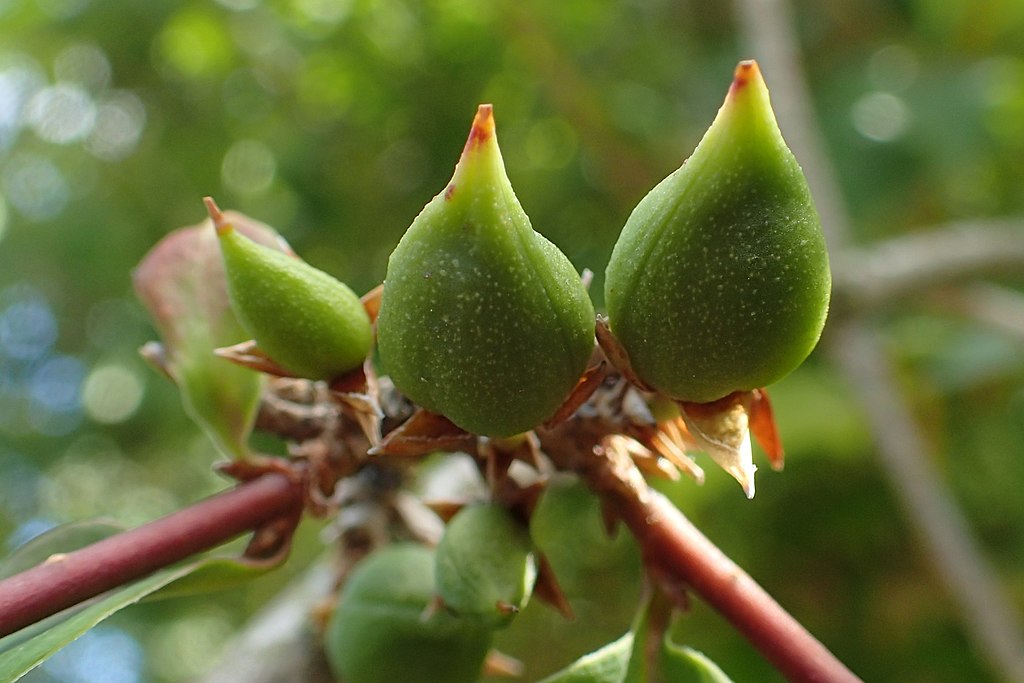The Natural Remedy for Many Illnesses
Forsythia fruit benefits are quite clear. So much so that it’s worth your time to learn about it!
The centuries-old practice of using medicinal plants, Forsynthia has been found to be a promising solution in treating various health issues. It is one of the most popular herbs gaining popularity rapidly. Not only is it beautiful and fragrant, but it also holds numerous health benefits.

Forsythia fruit benefits hold a secret power to help rid the body of toxins
This plant contains various compounds that have been shown to possess antioxidant and anti-inflammatory properties. These properties work together to defend the body against harmful free radicals that can accumulate over time and cause cellular damage.
Forsythia has also been linked to improved liver function, helping to process and eliminate toxins from the body more efficiently.
Its unique properties make it a valuable addition to any wellness routine, aiding in the body’s natural detoxification process.
The fruit of this plant is gaining recognition in the medical world as it has proven to be useful in treating a variety of illnesses including…
- heart illness
- HIV/AIDS
- gonorrhea
- pain and swelling
- tonsillitis, sore throat, fever, vomiting, and erysipelas
(Each explained below in this article.)
A Yellow Flowering Plant with Fruit
 Often referred to as the “golden bell,” Forsythia is a yellow flowering plant. It is a beautiful, yellow-flowered shrub that blooms in early spring, and produces fruit.
Often referred to as the “golden bell,” Forsythia is a yellow flowering plant. It is a beautiful, yellow-flowered shrub that blooms in early spring, and produces fruit.
While the fruit may not be as showy as the flowers, it is still worth taking note of its edibility.
The small, green fruit that appears after the flowers fall off is indeed edible, although it is not commonly eaten due to its sour taste.
However, in some cultures, forsythia fruit is used in recipes for its medicinal properties and is said to have benefits for the respiratory system.
Forsythia fruit may be small, but its medicinal properties are mighty, making it a valuable ingredient in traditional Chinese medicine.
Forsythia fruit benefits are touted in TCM
Forsythia fruit, also known as Lian Qiao in Chinese, has been a staple in traditional Chinese medicine for centuries.
According to traditional Chinese medicine, Forsythia fruit helps alleviate inflammation, fever, sore throats, and respiratory infections.
Chinese herbalists brew a tea made from Forsythia fruit to help boost the immune system and speed up recovery from illnesses.
Its anti-inflammatory and anti-bacterial properties make it a powerful tool in the fight against infectious diseases.
Forsythia Fruit Benefits
1. Heart Illness
Forsythia fruit helps in reducing cholesterol levels in the body, leading to an improvement in the heart’s health. The fruit has been found to help in reducing high blood pressure, which can help prevent heart attacks and strokes.
2. HIV/AIDS
Forsythia has potent antiviral properties, which can help to combat the virus responsible for causing HIV/AIDS. Research shows that Forsythia can help to prevent the virus from replicating, which can help in the treatment of the disease.
3. Gonorrhea
Forsythia has the power to fight bacteria that cause gonorrhea, a sexually transmitted disease. The fruit has anti-inflammatory and anti-bacterial properties that can treat the infection and reduce inflammation, alleviating debilitating pain and discomfort that comes with the disease.
4. Pain and Swelling
The anti-inflammatory properties of Forsythia are very effective in reducing pain and swelling in the body. Whether it is joint pain or inflammation caused by an injury or infection, Forsythia helps to relieve the symptoms.
5. Tonsillitis, Sore Throat, Fever, and Erysipelas
Forsythia has anti-pyretic, anti-inflammatory, and anti-bacterial properties, which can help in treating tonsillitis, sore throat, fever, and erysipelas. The fruit can reduce inflammation, ease pain and discomfort, and lower fever, making recovery from these illnesses faster and more comfortable.
Forsythia fruit is loaded with numerous health benefits, and it is an effective natural remedy to combat various health conditions. It has potent anti-inflammatory, anti-bacterial, and antiviral properties.
As we learn more about the potential benefits of this unassuming fruit, one thing is for certain – Forsythia is proving to be more than just a pretty flower.
Forsythia fruit benefits in tea
In the world of herbal teas, Forsythia fruit tea is a lesser-known but no-less impressive brew. Not only does it have a mild, soothing flavor, but it also boasts a range of potential health benefits, from reducing inflammation to promoting healthy skin.
If you’re curious about how to make this unique tea, fear not! The process is actually quite simple.
→ First, gather fresh, ripe Forsythia fruits from your garden or a local farmers’ market.
→ Then, rinse them clean and leave them to dry in the sun.
→ Once dry, boil the fruit in water for thirty minutes before straining the liquid and discarding the fruit.
→ Voila! You now have a delicious and nutritious cup of Forsythia fruit tea.
Experiment with adding honey, lemon, or other flavors to find your perfect blend.
A taste that’s sure to surprise your buds
The small, round fruit looks almost like a tiny lemon but has a bright orange color that is truly eye-catching.
When you pop the fruit into your mouth, you’ll first be met with a tart flavor that is reminiscent of cranberries. But then, as you continue to chew on it, the fruit’s sweetness is unlocked, leaving a delightful combination of sour and sweet.
This little fruit is definitely one to try if you’re looking for something new and exciting to tantalize your taste buds.
Precautions & Side Effects
Bright yellow and full of vitamin C, Forsythia fruit has long been a staple in traditional Chinese medicine. But what about its potential side effects?
But beyond its role as an herbal remedy, recent studies show that Forsynthia can slow blood clotting. The fruit’s extract contains significant amounts of lignans, which are chemical compounds that play a role in preventing the formation of blood clots.
While this may not sound like a big deal, blood clotting is a major issue for those who suffer from cardiovascular diseases.
While consuming Forsythia fruit in moderation is generally considered safe, overconsumption can lead to gastrointestinal issues such as abdominal pain, diarrhea, and nausea.
It’s important to approach any new addition to your diet with caution, and if you have a history of digestive issues, consider consulting with a healthcare professional before consuming Forsythia fruit.
However, if you’re looking to add a pop of color and potential health benefits to your diet, Forsythia fruit is definitely worth considering.
